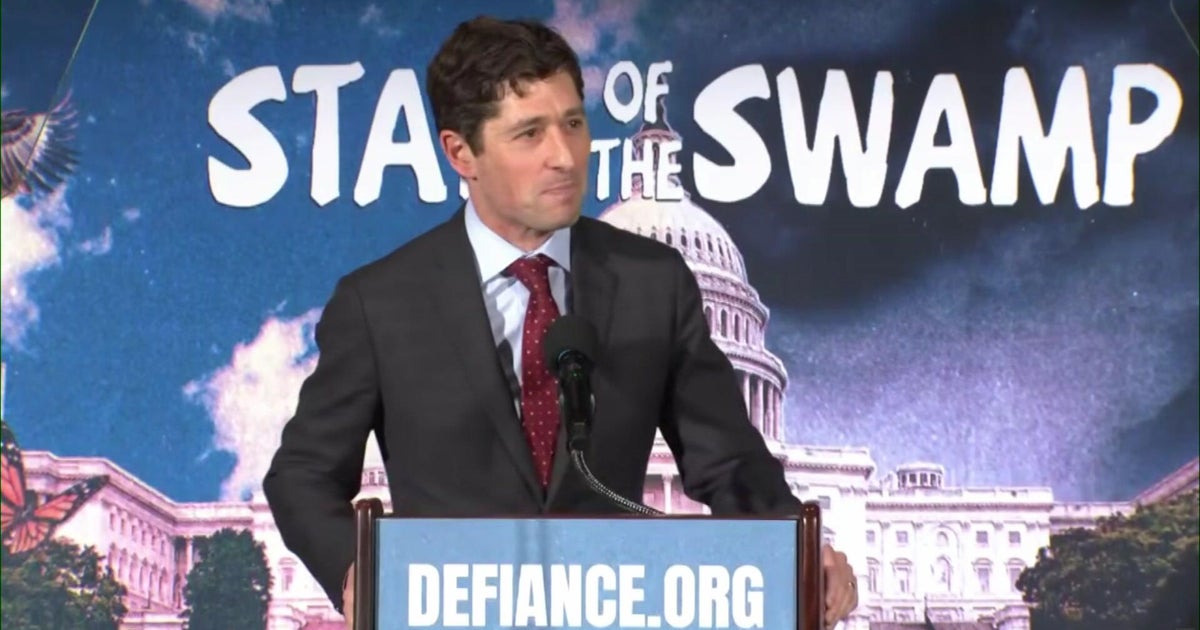GOP Senator Tom Cotton under fire for comment that slavery was "necessary evil"
Senator Tom Cotton drew criticism after he said the Founding Fathers viewed slavery to be a "necessary evil." The Arkansas Republican made the comments while discussing a bill that would reduce federal funding to schools that add The New York Times' "1619 Project" to their curriculum.
The 1619 Project is a series of essays and other works reexamining the history and legacy of slavery in the United States. (1619 refers to the year the first enslaved Africans were brought to the American colonies.) It won this year's Pulitzer Prize for commentary, but some conservatives, including President Trump and Cotton, have condemned it.
In an interview with Arkansas Democrat-Gazette, Cotton called the 1619 Project a "racially divisive, revisionist account" of history and said his proposed bill would mean school districts who incorporate it wouldn't qualify for federal funding aimed at improving teacher quality.
"It won't be much money," Cotton said. "But even a penny is too much to go to the 1619 Project in our public schools. The New York Times should not be teaching American history to our kids."
Cotton then addressed how he believes the topic of slavery should be handled in the United States.
"We have to study the history of slavery and its role and impact on the development of our country because otherwise we can't understand our country. As the Founding Fathers said, it was the necessary evil upon which the union was built, but the union was built in a way, as Lincoln said, to put slavery on the course to its ultimate extinction."
It's unclear which of the founders Cotton was alluding to, but many of them owned slaves at some point in their lives. Thomas Jefferson and James Madison, the third and fourth U.S. presidents, respectively, both called slavery "evil" yet continued to own slaves themselves. The Constitution was adopted after a series of compromises over slavery, including a provision that counted enslaved people as three-fifths of a person in a state's congressional representation. It took a bloody Civil War, nearly a century after the signing of the Declaration of Independence, before slavery was abolished.
Nikole Hannah-Jones, the 1619 Project founder, called out Cotton's remarks on Twitter.
"If chattel slavery — heritable, generational, permanent, race-based slavery where it was legal to rape, torture, and sell human beings for profit — were a 'necessary evil' as @TomCottonAR says, it's hard to imagine what cannot be justified if it is a means to an end," Hannah-Jones tweeted.
She also posed the question: "Were the Founders right or wrong,@TomCottonAR, when they called slavery a 'necessary evil upon which the Union was built'? Because either you agree with their assessment of slavery as necessary or you admit they were lying and it was just an evil and dishonorable choice. Which?"
In response to criticism, Cotton reiterated the claim that it was the Founding Fathers who said it was a necessary evil, not him. On Monday, Cotton continued to clarify his comments in an interview with Fox News.
"Of course slavery is an evil institution in all its forms, at all times, in America's past or around the world today. But the fundamental moral principle of America is right there in the Declaration: 'All men are created equal,'" he said. "And the history of America is the long and sometimes difficult struggle to live up to that principle."
"That's a history we ought to be proud of, not the historical revisionism of 'The 1619 Project,' which wants to indoctrinate America's kids and teach them to hate America," he added.
In a written statement, a Times spokesman told the Democrat-Gazette that the 1619 Project "is based in part on decades of recent scholarship by leading historians of early America that has profoundly expanded our sense of the colonial and Revolutionary period. Much of this scholarship has focused on the central role that slavery played in the nation's founding."
An essay introducing the project reads, "By acknowledging this shameful history, by trying hard to understand its powerful influence on the present, perhaps we can prepare ourselves for a more just future."



